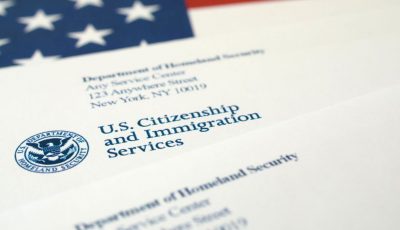USCIS urges parolees to check case status if expecting response
‘Expired parolees need to exit’
U.S. Citizenship and Immigration Services is urging parolees who have yet to receive a response for a previous re-parole application to check their case status online.
A USCIS spokesperson told Saipan Tribune yesterday that parolees who are expecting a response for their re-parole application, but has not received one should first check their case status on the USCIS website or contact them through phone.
“In order to have had parole extended after Dec. 31, 2018, an individual would have had to have received a grant letter extending parole until June 29, 2019, in response to a request for extension made in 2018 or early 2019. USCIS announced in late June 2019 that paroles were automatically extended until Oct. 28, 2019, and that any individual desiring extension of parole beyond Oct. 28, 2019, needed to file a new request for extension,” the spokesperson said, adding that the agency doesn’t comment on individual cases or circumstances.
“But in general, a request for parole would have been answered either with a grant letter or a denial letter. Without one or the other, the best thing an applicant can do is to check Case Status Online on our website, or phone our Contact Center at 1-800-375-5283, to find out his or her status,” the spokesperson noted.
Parolees will have to exit the CNMI though if they have not received an extension for a previous re-parole application as of Oct. 28, 2019.
“If an individual does not have parole or other lawful basis to remain in the United States, they should leave,” a USCIS email response stated.
However, when resubmitting applications for re-parole without leaving the CNMI, an individual may contact USCIS if they believe the agency has not responded to a pending request.
Public Law 116-24 provides permanent status in the CNMI to parents and spouses of U.S. citizens, in-home caregivers, certain stateless individuals, and immediate relatives of people that are granted permanent status by CNMI immigration law.
USCIS has yet to announce regulations on how parolees can apply for permanent resident status.



























